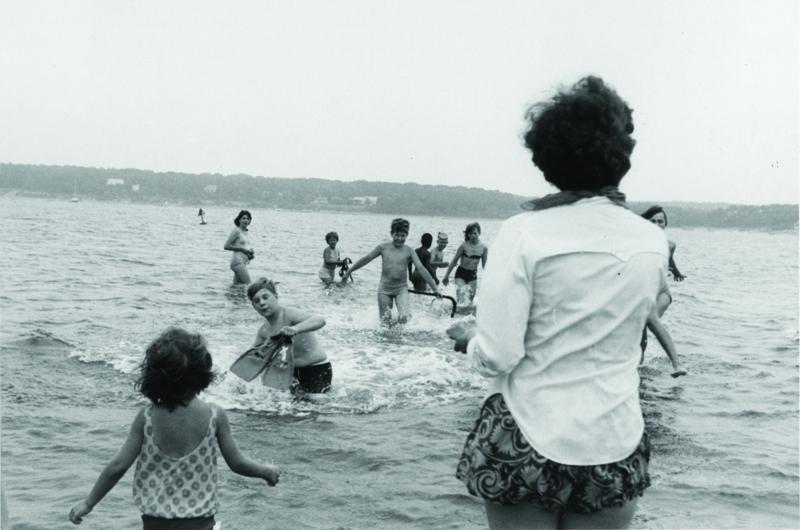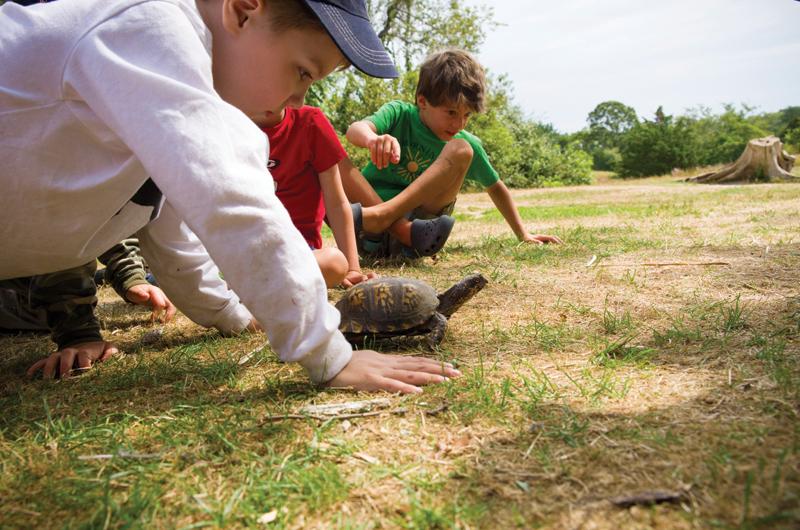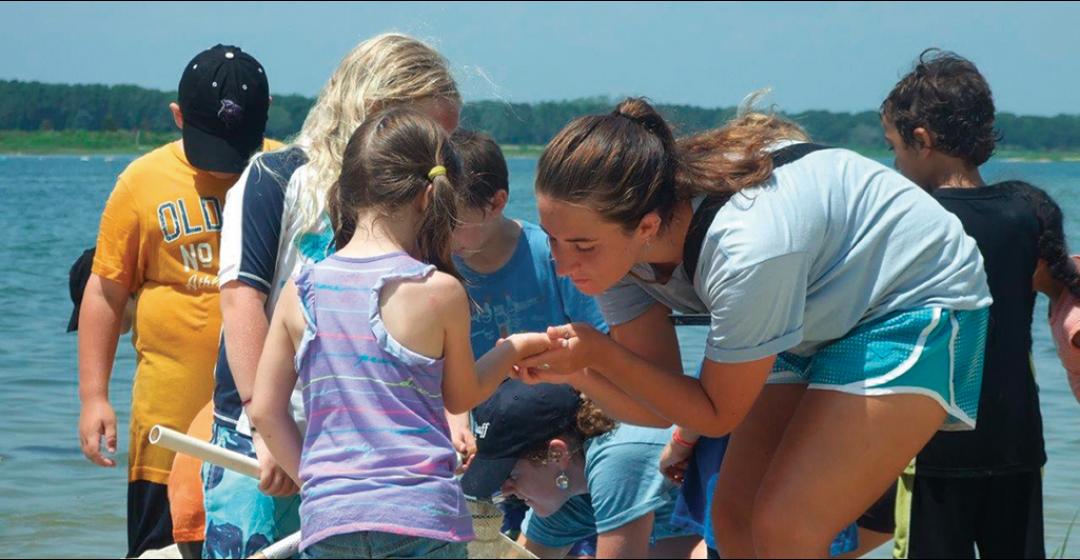Ask almost anyone about their childhood days at summer camp and they will regale you with tales of adventure, summer friendships, and cheesy camp songs they love to this day. At Sengekontacket Pond in Edgartown it’s no different.
The many alumni of Fern and Feather Natural History Day Camp will tell you that they slept in tents, made fast friends, and looked up to this counselor or another. But they’ll also tell you about the first time they held a snake, and the time they found their first horseshoe crab.
Since it began in the summer of 1964 with an initial cohort of thirty-two campers, the focus of Fern and Feather day camp has been bringing kids up close and personal with the natural world.
Fifty years later, the camp serves more than three hundred kids each summer, still sending them home with dirt under their fingernails and mosquito bites on their tanned arms and legs. The camp-wide scavenger hunt lives on, and youths still scour the saltwater pond with dip nets, examining the plant and animal life beneath the surface. Young explorers – both year-round residents and seasonal visitors – traverse the same trail networks: Marsh, Sassafras, Shad, and Beach.

“It’s still hands-on learning out in the field, using nets, collecting animals, studying things,” said Gus Ben David, the longtime director of Felix Neck Wildlife Sanctuary who retired in 2005. “It is a real natural history day camp, one of the most educational camps on the Vineyard.”
For Dr. Paul Goldstein, now a research entomologist and evolutionary biologist with the Smithsonian Institution, the camp deepened his interest in the natural world. “I got a lot of encouragement there, which was kind of rare,” he said, recalling his childhood days at Fern and Feather in the 1970s. He
later went on to serve as a counselor.
The camp was flush with serious birders, kids who came to camp with an inclination to natural history. But many others were experiencing the outdoors for the first time, children for whom just seeing the stars at night was a novelty. “They didn’t know what pine cones were,” Goldstein said. “If you hadn’t been exposed to natural areas, I don’t think there was anything similar to it anywhere.”
From the beginning, exposing city kids to the environment has been a part of the camp’s mission, and it’s a priority that Ben David believes is even more vital today, as people have become increasingly disconnected from the natural world. “There are so many kids now that haven’t had any exposure to nature, kids from the inner city who have never seen a turtle or wouldn’t even think of touching a snake,” he said.
Ben David’s successor, Suzan Bellincampi, is equally committed to expanding the camp’s reach. Fern and Feather typically awards $10,000 in scholarship money each year, and this year is trying to raise $50,000 for the fiftieth anniversary. “We have never turned any [Island] family down requesting aid,” she said.

As it goes with many things, Fern and Feather began with a dream. That dream belonged to Anne Hale, a lover of children and a student of botany, who was sitting one afternoon in the early 1960s in the Chappaquiddick living room of her friend Edo Potter. “We were just thinking that it was a shame not to have a place to have a real nature camp,” Hale said at Fern and Feather’s twenty-fifth anniversary party in 1989.
Hale was not the type for idle talk and it didn’t take long for her to go to work to make the dream a reality. First she persuaded George Moffett to purchase the neck adjacent to Sengekontacket Pond. An avid birder and a naturalist, he allowed the camp to operate on his property for several years before eventually donating the land to Mass Audubon to create the Felix Neck Wildlife Sanctuary, which is the camp’s permanent home.
“The dream was just so vivid and so perfect that it worked and will probably work forever,” said Jacquie Renear, the original education director of the camp. Hale died in 1992 at age 71. But at fifty years and counting, her camp lives on.
For more information about Fern and Feather Natural History Day Camp, visit massaudubon.org or call 508-627-4850.





